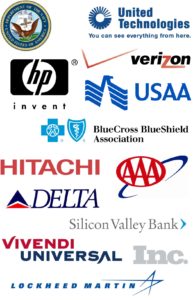Once onto the desktop, Spam leaves your entire business at the mercy of an employee doing the “right thing”. Don’t let these malware-laden emails cripple your business. Stay protected with an in-line, real-time Managed anti-spam solution.
- No Delay in email delivery – scans in real-time
- Automatically Receives and Stores Email should your email server go offline
- Applies filters to all outbound email to prevent your users from sending on malicious email
- Continually Updated Filters adjust to new attacks automatically
- Priced per mailbox
- Managed by experts
It’s difficult to find, but make sure that you’re protected against:
- Phishing
- Trojans
- Zero Hour
- Malware
- IP Blacklisting
- DDoS
- Worms
- Targeted Attacks
- Spam Botnets
- Blended Attacks
- Messaging Abuse
Typical Anti-spam Software:
- Store and forward introduces delays in delivery of emails
- Only filters inbound emails—not outbound—which leads to your company being Blacklisted
- Only quarantines email on a group basis not on an individual employee basis
- Complex and expensive licensing models
Email spam, also known as unsolicited bulk Email (UBE), junk mail, or unsolicited commercial email (UCE), is the practice of sending unwanted email messages, frequently with commercial content, in large quantities to an indiscriminate set of recipients. Spam in email started to become a problem when the Internet was opened up to the general public in the mid-1990s. It grew exponentially over the following years, and today composes some 80 to 85% of all the email in the world, by a “conservative estimate”.[3] Pressure to make email spam illegal has been successful in some jurisdictions, but less so in others. Spammers take advantage of this fact, and frequently outsource parts of their operations to countries where spamming will not get them into legal trouble.
Increasingly, email spam today is sent via “zombie networks”, networks of virus– or worm-infected personal computers in homes and offices around the globe. Many modern worms install a backdoor which allows the spammer to access the computer and use it for malicious purposes. This complicates attempts to control the spread of spam, as in many cases the spam doesn’t obviously originate from the spammer. In November 2008 an ISP, McColo, which was providing service tobotnet operators, was depeered and spam dropped 50%-75% Internet-wide. At the same time, it is becoming clear that malware authors, spammers, and phishersare learning from each other, and possibly forming various kinds of partnerships.
An industry of email address harvesting is dedicated to collecting email addresses and selling compiled databases.[4] Some of these address harvesting approaches rely on users not reading the fine print of agreements, resulting in them agreeing to send messages indiscriminately to their contacts. This is a common approach in social spam such as that generated by the social networking site Quechup.[5]




